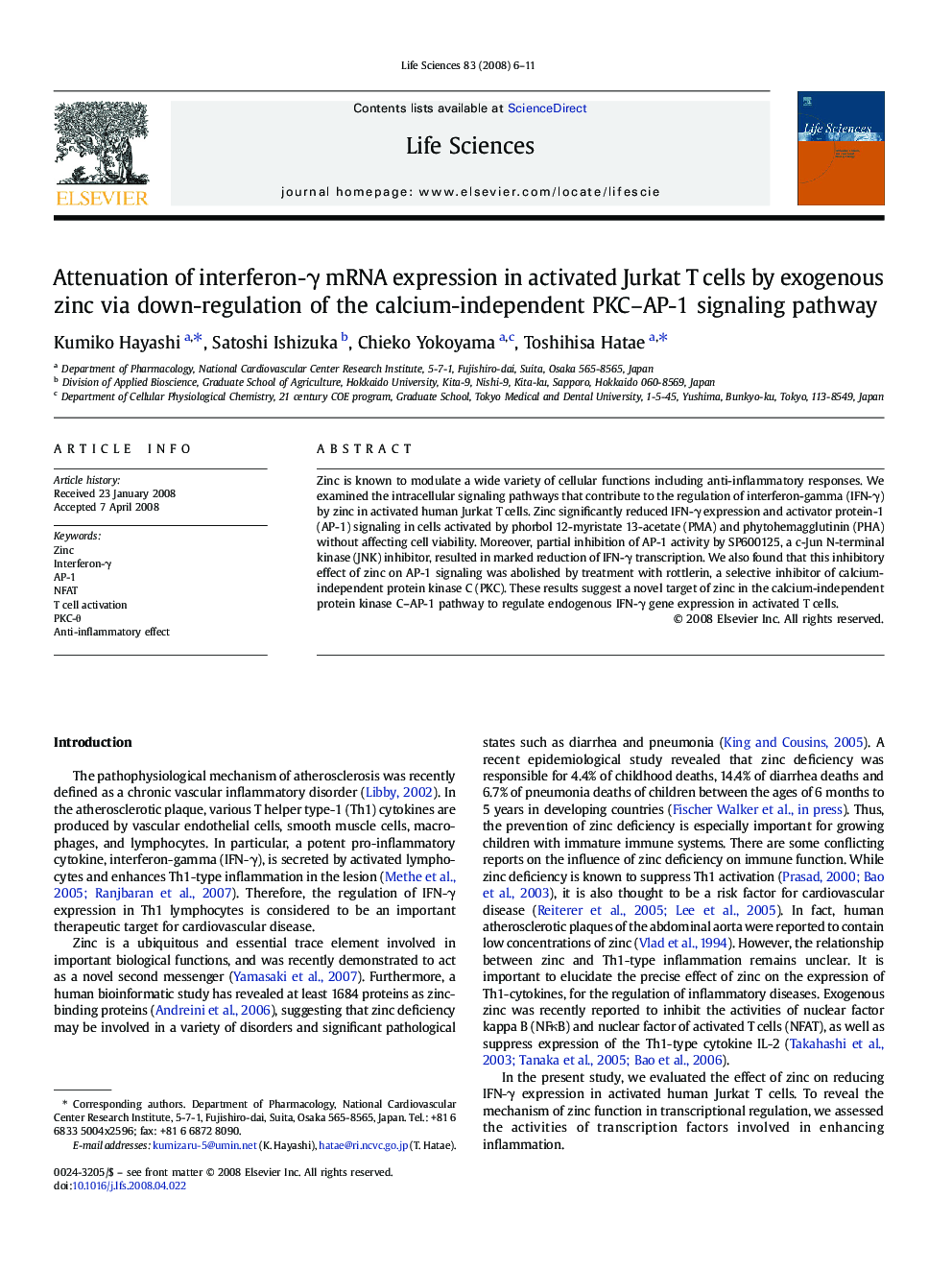| Article ID | Journal | Published Year | Pages | File Type |
|---|---|---|---|---|
| 2553160 | Life Sciences | 2008 | 6 Pages |
Zinc is known to modulate a wide variety of cellular functions including anti-inflammatory responses. We examined the intracellular signaling pathways that contribute to the regulation of interferon-gamma (IFN-γ) by zinc in activated human Jurkat T cells. Zinc significantly reduced IFN-γ expression and activator protein-1 (AP-1) signaling in cells activated by phorbol 12-myristate 13-acetate (PMA) and phytohemagglutinin (PHA) without affecting cell viability. Moreover, partial inhibition of AP-1 activity by SP600125, a c-Jun N-terminal kinase (JNK) inhibitor, resulted in marked reduction of IFN-γ transcription. We also found that this inhibitory effect of zinc on AP-1 signaling was abolished by treatment with rottlerin, a selective inhibitor of calcium-independent protein kinase C (PKC). These results suggest a novel target of zinc in the calcium-independent protein kinase C–AP-1 pathway to regulate endogenous IFN-γ gene expression in activated T cells.
